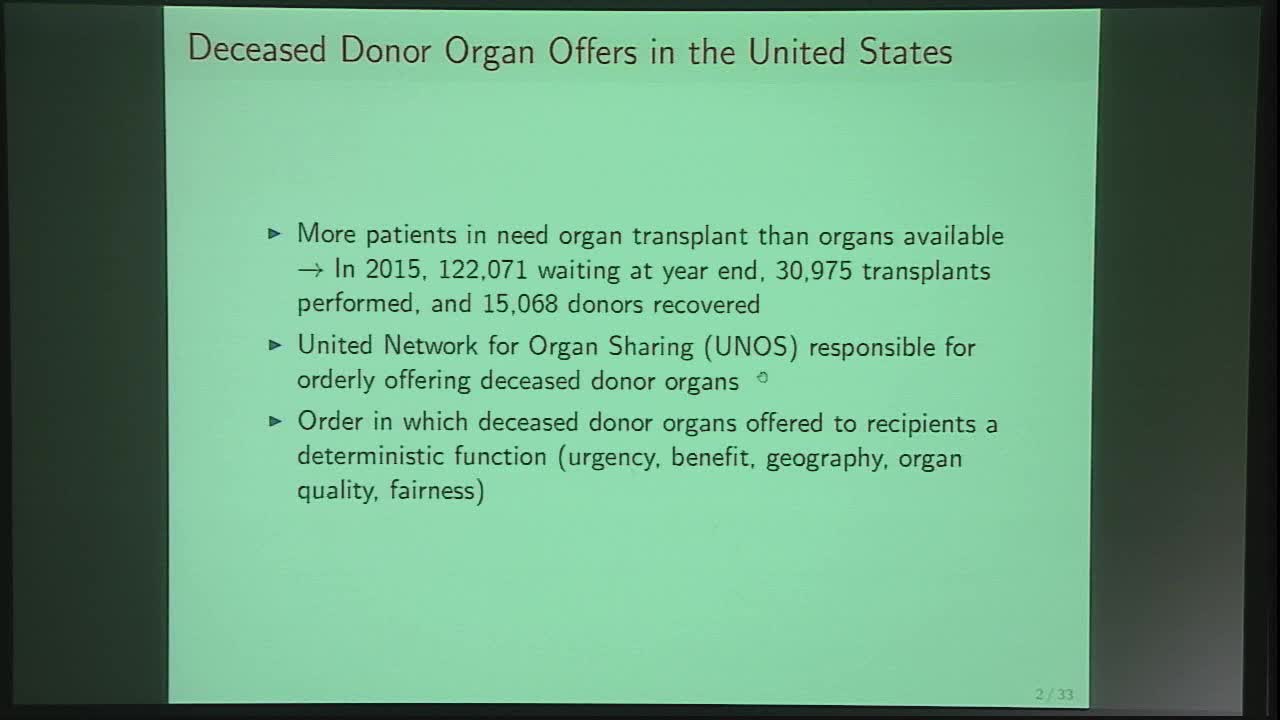Estimating Individual-Level and Population-Level Causal Effects of Organ Transplantation Treatment Regimes
Presenter
September 14, 2017
Keywords:
- Causal Inference; Dynamic Treatment Regimes; Inverse Probability Weighting; Organ Transplantation
Abstract
Patients awaiting cadaveric organ transplantation face a difficult decision if offered a low-quality organ: accept the organ or remain on the waiting list and hope a better organ is offered in the future. A dynamic treatment regime (DTR) for transplantation is a rule that determines whether a patient should decline an offered organ. Existing methods can estimate the effect of DTRs on survival outcomes, but these were developed for applications where treatment is abundantly available. For transplantation, organ availability is limited, and existing methods can only estimate the effect of a DTR assuming a single patient follows the DTR. We show for transplantation that the effect of a DTR depends on whether other patients follow the DTR. To estimate the anticipated survival if the entire population awaiting transplantation were to adopt a DTR, we develop a novel inverse probability weighted estimator (IPCW) which re-weights patients based on the probability of following their transplant history in the counterfactual world in which all patients follow the DTR of interest. We estimate this counterfactual probability using hot deck imputation to fill in data that is not observed for patients who are artificially censored by IPCW once they no longer follow the DTR of interest. We show via simulation that our proposed method has good finite-sample properties, and we apply our method to a lung transplantation observational registry.
